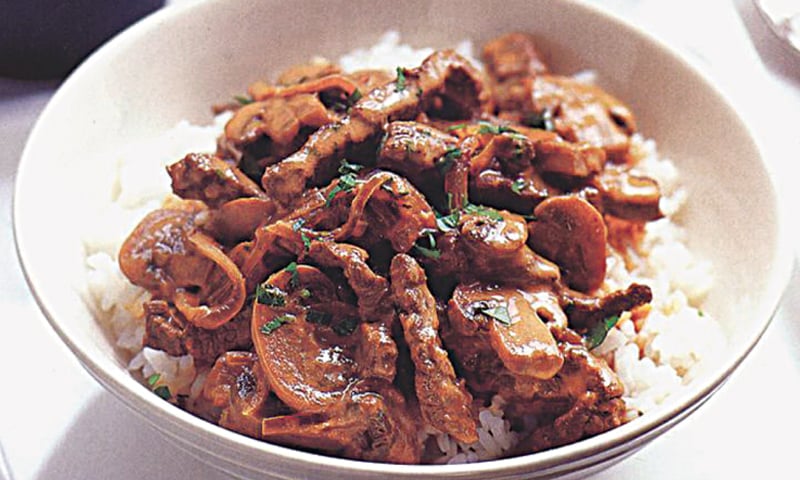Salt is just salt, right? Wrong. I normally use sea salt for most of my cooking, but around five years ago, I spotted a small bottle in a supermarket that proclaimed that it contained salt from the Himalayas. These pinkish crystals are from the Khewra salt mines in north Punjab and slabs of the stuff can be bought very cheaply in most Pakistani markets. In England, however, the same salt will set you back nearly four pounds for a perfume-sized bottle. The power of modern marketing…
When this ultra-foodie substance hit upscale shops, it went mainstream very quickly. Soon, chefs built chambers lined with slabs of ‘Himalayan salt’, where they hung meat. The idea was that the intensely salty environment thus created would absorb the moisture from the meat as it aged. Salt slabs are being sold, usually to restaurants, for cooking steaks.
However, it is a fact that different salts can have different degrees of saltiness and different textures. Some restaurants in Karachi now sprinkle a few crystals on ice cream to create a contrast between the sweetness and softness of the dessert, and the saltiness and the gritty texture of the salt.
A dash of salt can do wonders for your cooking, releasing flavours and ridding the dishes of blandness
There is rock salt, sea salt and the aristocrat among salts, fleur de sel or flower of the salt. The latter is harvested from marshes along the southern French coast. As the process is quite labour-intensive, this salt is pretty expensive, and is mostly used to sprinkle on salads instead of cooking.
Samin Nosrat in her brilliant book Salt, Fat, Acid, Heat explores the four elements that define the flavour in dishes. Nosrat is of Iranian origin and learned to cook at Berkeley’s iconic Chez Panisse Restaurant. She is now a famous chef and food writer. In her book, she writes: “If food isn’t properly salted, no amount of fancy cooking techniques or garnishes will make up for it. … Tasting and adjusting — over and over again as you add ingredients and they transform throughout the cooking process — will yield the most flavourful food. Getting the seasoning right is about getting it right at every level — bite, component, dish and meal. This is seasoning from within.”
Nosrat suggests that salting meat thoroughly several hours before you cook it will cause it to be more tender and tasty when it is ready. I must try this technique the next time I roast a chicken or a leg of lamb.

Older readers will remember favourites that were a regular standby in the ’50s and ’60s. This was a time when shrimp cocktails were almost compulsory starters, and dishes such as Chicken a la Kiev and Beef Stroganoff were the most popular dishes on the menu. The other day, I decided to cook the latter, using a large rib-eye steak. This was sliced into half-inch pieces and kept aside. The sauce was a simple affair: chopped mushrooms, a sliced onion, a chopped tomato, some olives and a small aubergine, also sliced, were fried in butter. Salt and freshly ground pepper were added according to taste. When the vegetables had softened, the meat was quickly fried in another pan. As the slices were thin, very little cooking was required. When the meat was still pink at the centre (around two minutes), it was thrown into the sauce and cooked briefly to make the flavours meld.
Readers can judge how old this recipe is by the fact that butter, not olive oil, was the cooking medium and no herbs or garlic were used at all. But really, you can use any variation, adding or subtracting any of the vegetables in the sauce. This flexibility is what I liked about the recipe.
So while you may not see Beef Stroganoff on most menus, it’s a very easy dish to cook at home.
Published in Dawn, EOS, September 8th, 2019















































Dear visitor, the comments section is undergoing an overhaul and will return soon.